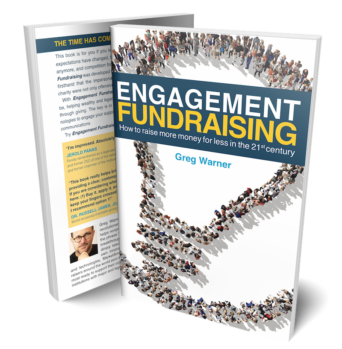We use cookies to ensure that we give you the best experience on our website. By continuing to use this site, you agree to our use of cookies in accordance with our Privacy Policy.
 Login
Login
Your Role
Challenges You Face
results
Learn
Resources
Company
12 Keys to Conducting Effective Donor Interviews


Curiosity is a fundraisers greatest asset. Yet even the most curious must learn to ask questions that yield the most insight into donor motivation and to link those propensities to institutional mission. The most important time to put structured curiosity to its best use is when meeting potential donors for the first time – including those who you are meeting for the first time even though they have given to your organization before. The rapport you do or do not establish with the donor at such meetings will be highly determinant of how the process unfolds, or not.
A fundraiser can begin to establish a rapport and put the prospect at ease by saying, “May I ask a few questions to ensure that we do all we can to relate our work to causes and purposes that you care most about? Assuming the prospect agrees, the most strategic question to ask is, “To what cause or purpose do you give the most, and why?” If the prospect responds by saying “social justice,” citing a number of issues and incidents that have dominated the headlines in the last year, the fundraiser would be wise to pivot to the social justice work being done, and to be done by their organization. Attempting to compete with donors’ pet causes, or being oblivious to them, will never be as effective as aligning with them because they are rooted so deeply in the donor’s psyche.
As someone who has conducted an enormous number of donor interviews and who continues to do so for various clients (in one recent week, I conducted 29), I thought it might be helpful to show how I get up for an interview and I ensure that I make the most of it.
Below is the advice I give myself when preparing for each.
12 Keys to Conducting Effective Donor Interviews
- Come seeking partnership not money, to learn not to sell.
- Remind them of the purpose of your purpose and ask them why they accepted the meeting.
- Conduct the interview as if you were their biographer.
- Ask probing follow up questions, especially, “How did you achieve that?” and “Why was that important to you?”
- Listen for the story they want to tell; in many instances it will come out tentatively and obliquely.
- Seek their reaction to a plan you have on the drawing board (preferably sent in advance of the meeting).
- Keep encouraging their candor, and accept it gratefully, even when they criticize what you have recommended or helped create.
- Don’t withdraw your appreciation if their values run counter to yours; try to understand and appreciate how and why they developed and lived by their code.
- Look for something specific in each person that you can be genuinely complimentary about, but never flatter or be false lest good people feel embarrassed – and weak ones come to expect it.
- Remind yourself of what you came to learn, circle back to some questions if they remain unclear in your mind.
- Thank them for giving you two priceless gifts, time and candor.
- Don’t be in a rush but don’t overstay your welcome; it is better to leave a bit early than to stay too late.
Jim Langley is the president of Langley Innovations. Langley Innovations provides a range of services to its clients to help them understand the cultural underpinnings of philanthropy and the psychology of donors and, with that knowledge, to develop the most effective strategies and tactics to build broader and more lasting communities of support. Jim has authored numerous books including his most recent book, The Future of Fundraising: Adapting to New Philanthropic Realities, published by Academic Impressions in 2020.
Related Resources:
- Webinar: 4-Step Process for “Reimagining Fundraising Operations”
- Why Fundraisers Need to Be Excellent Beat Reporters
- Cold calling major donors to arrange appointments doesn’t work – but this method does
LIKE THIS BLOG POST? LEAVE YOUR COMMENTS BELOW AND/OR SHARE IT WITH YOUR PEERS!
Get smarter with the SmartIdeas blog
Subscribe to our blog today and get actionable fundraising ideas delivered straight to your inbox!
